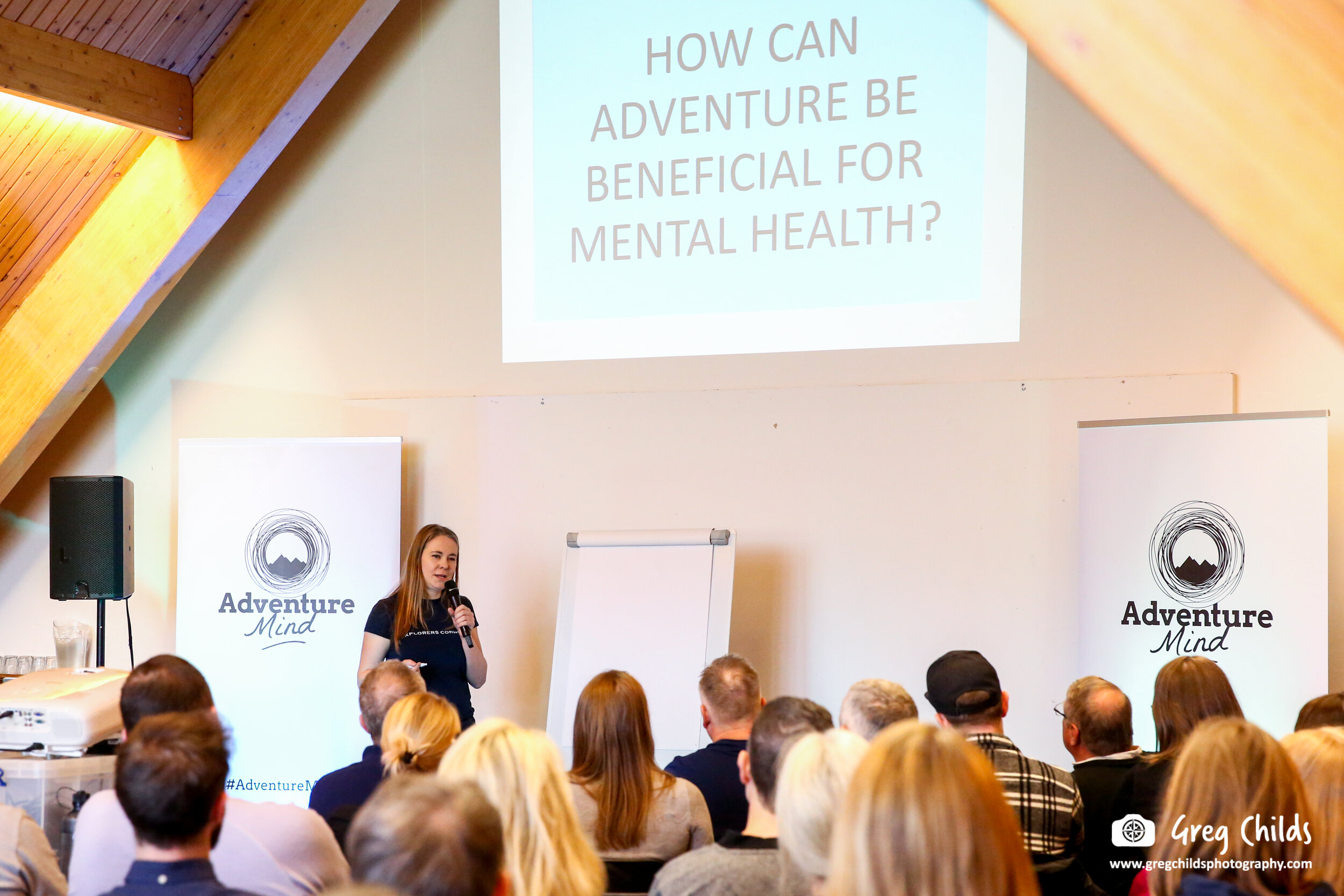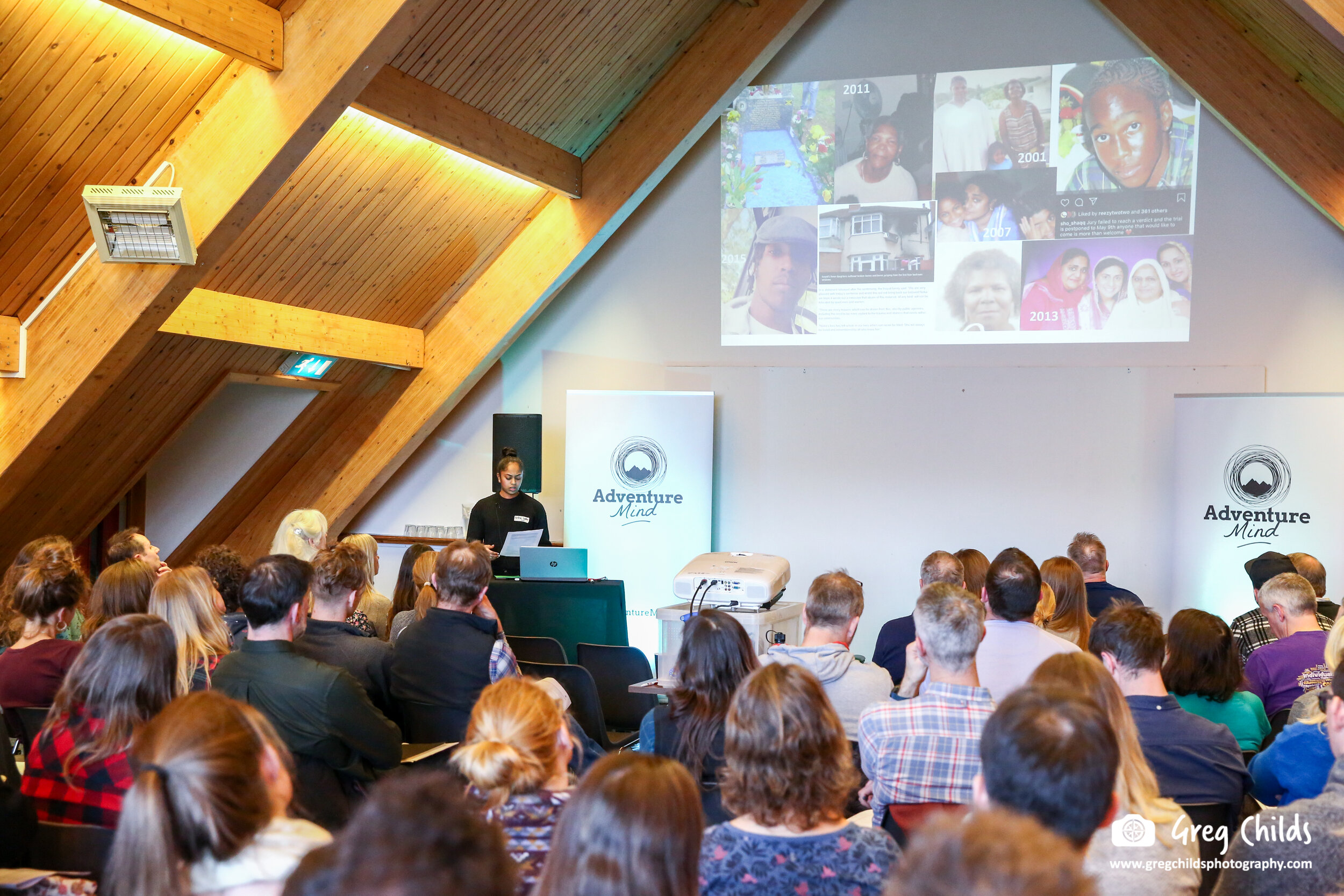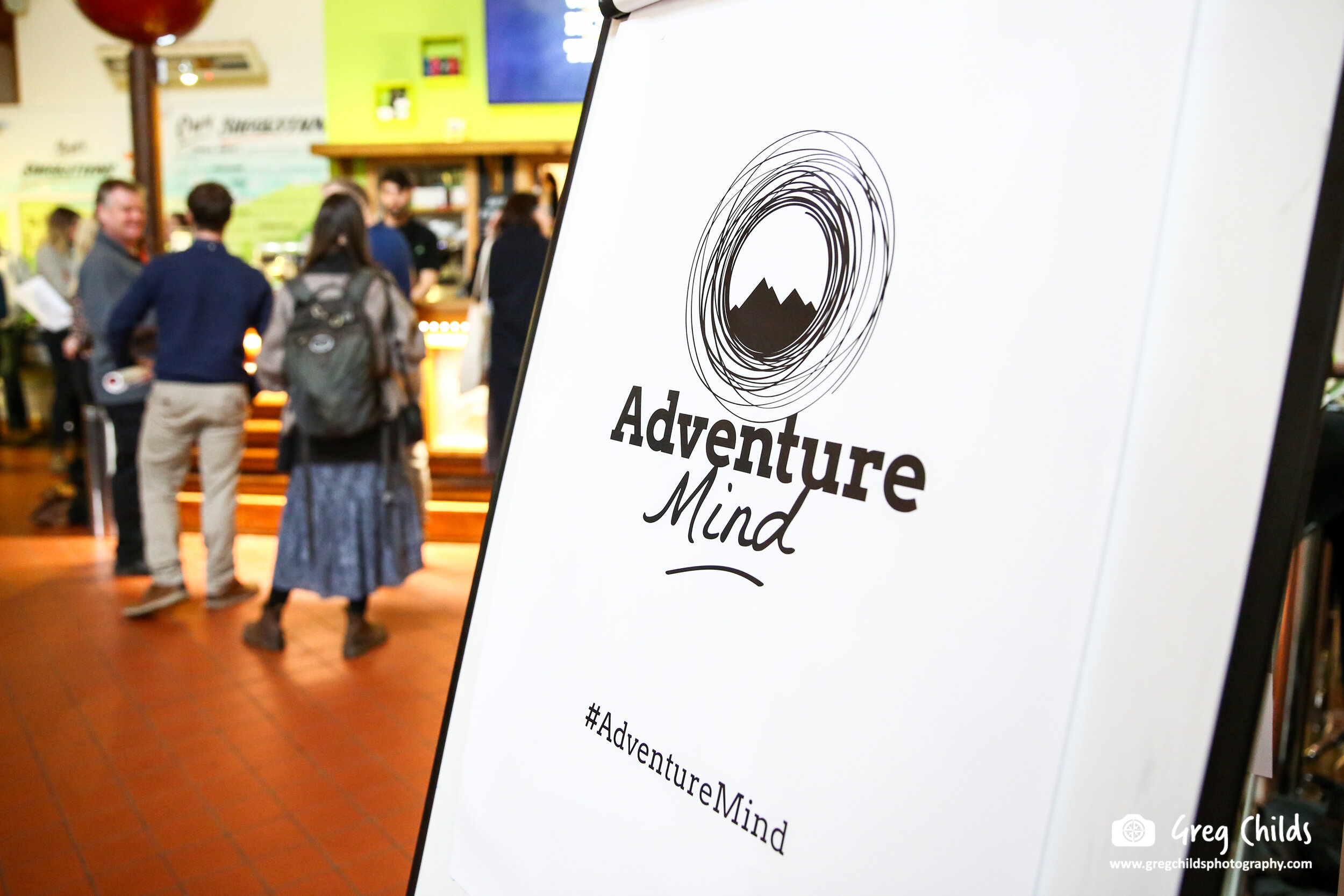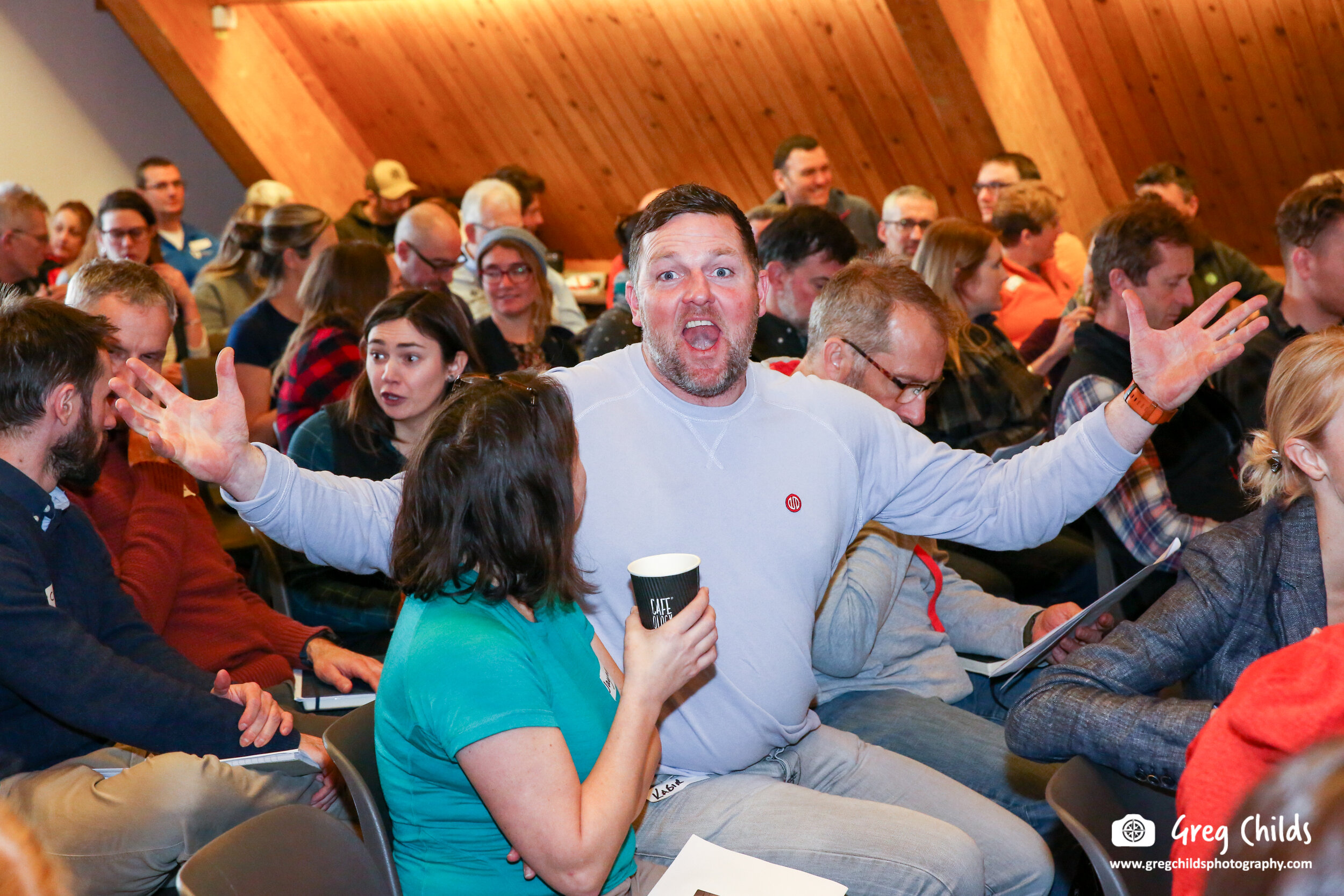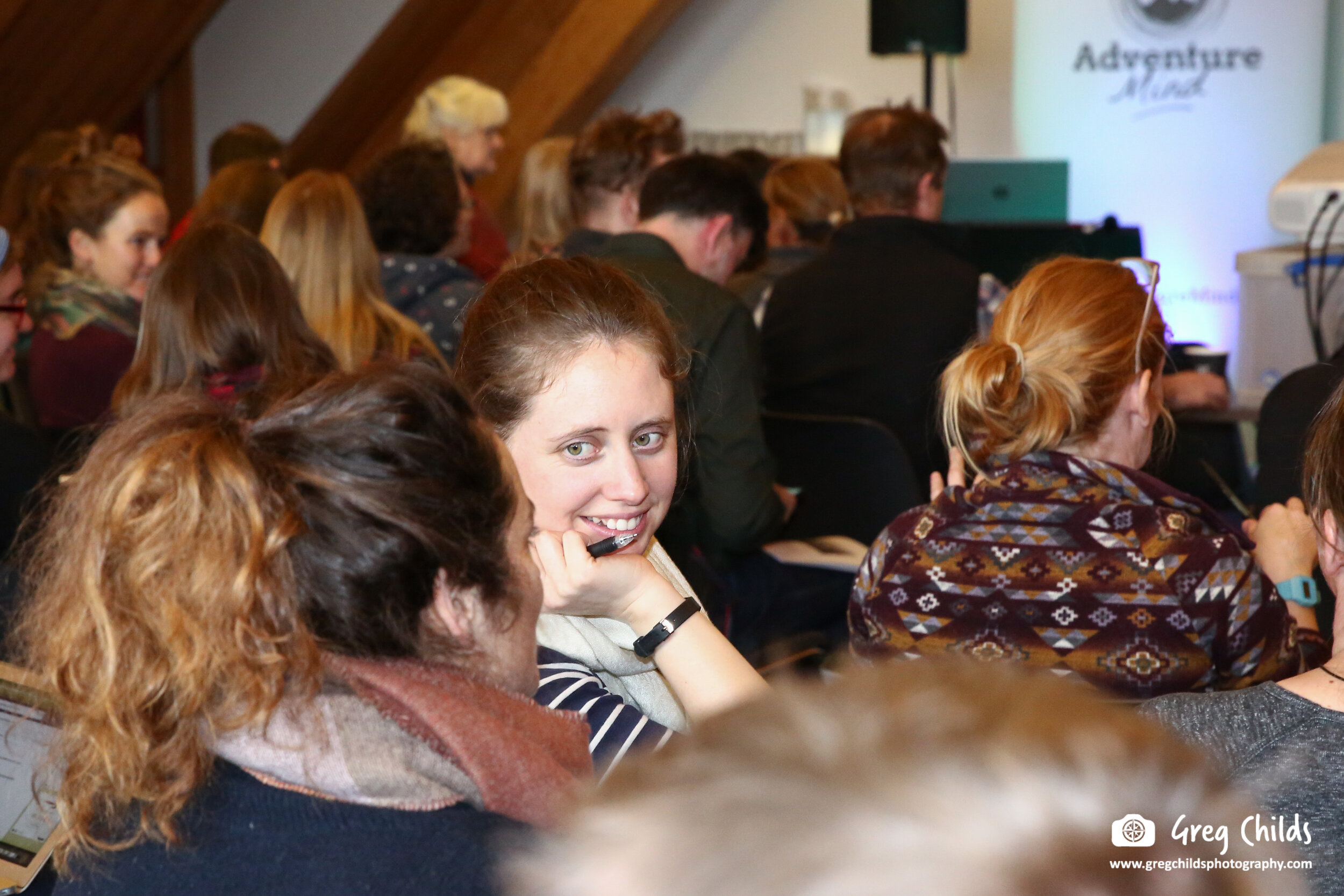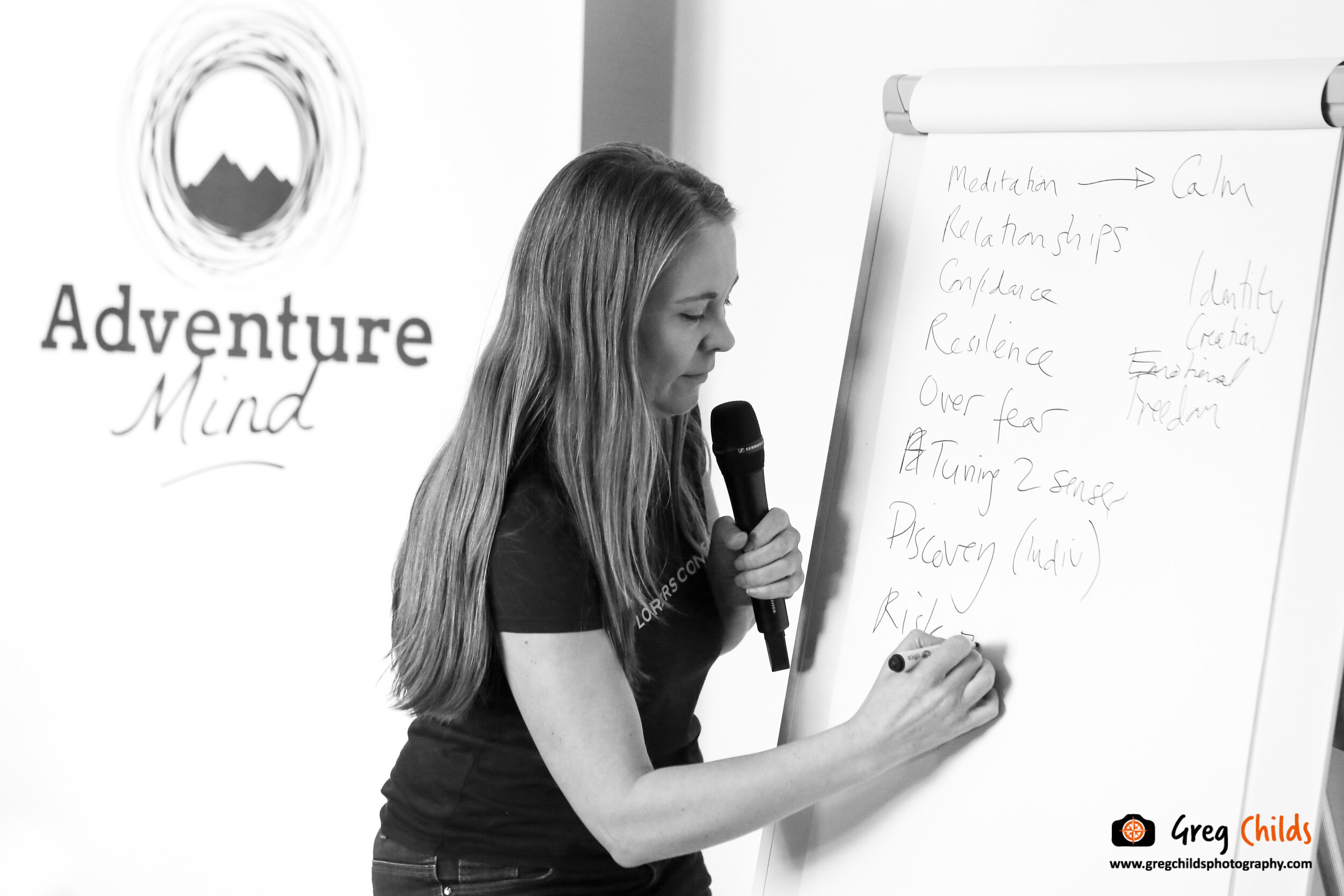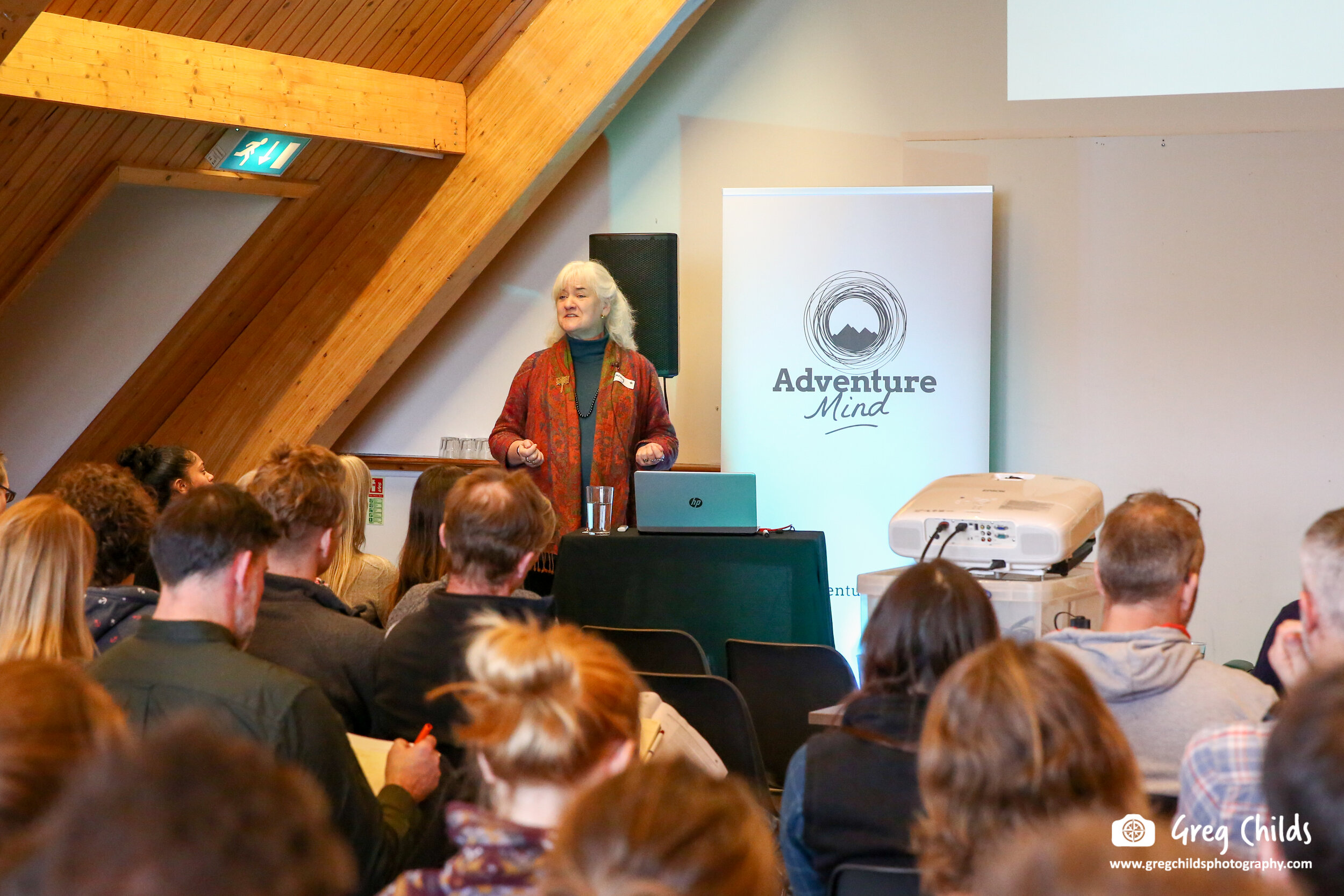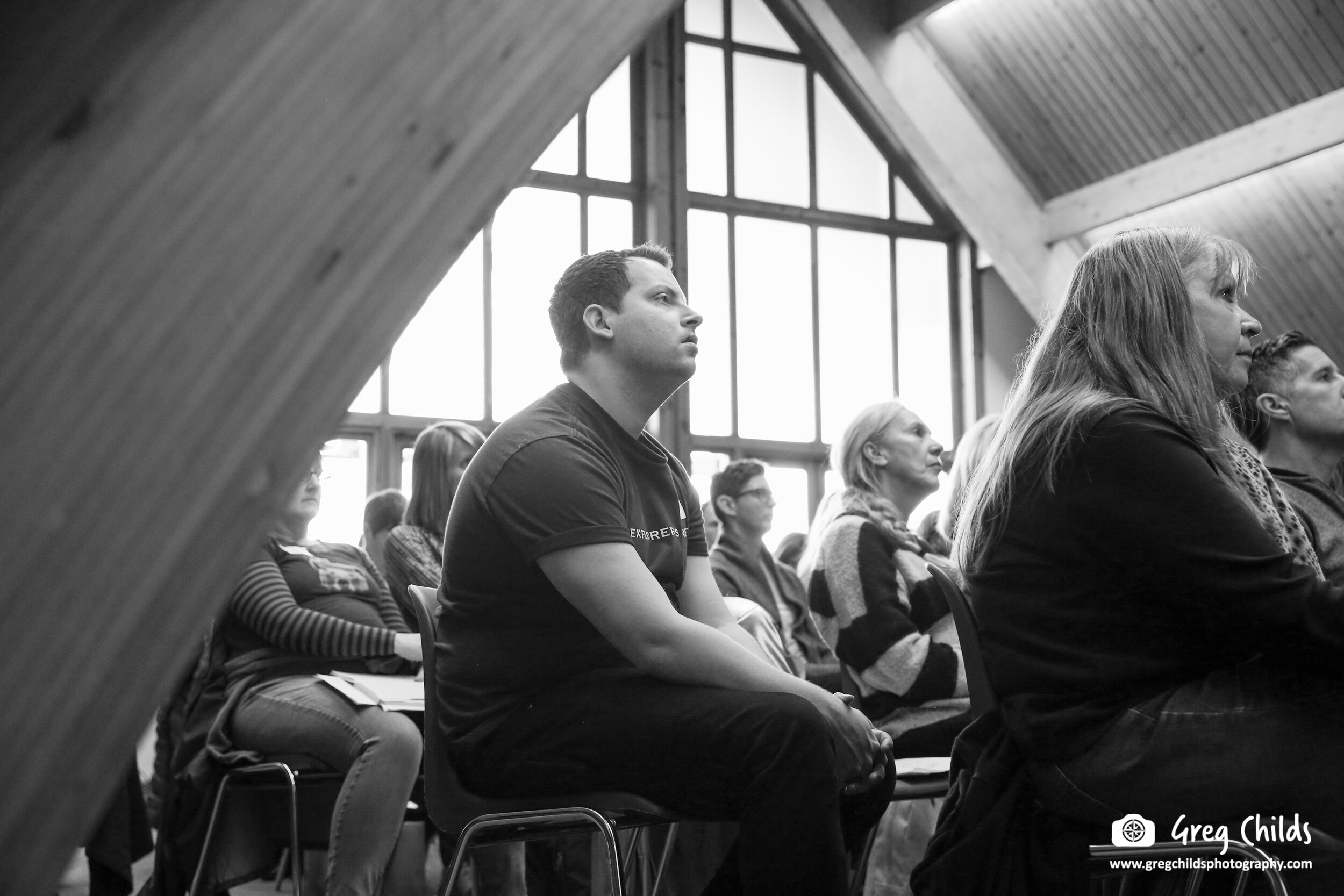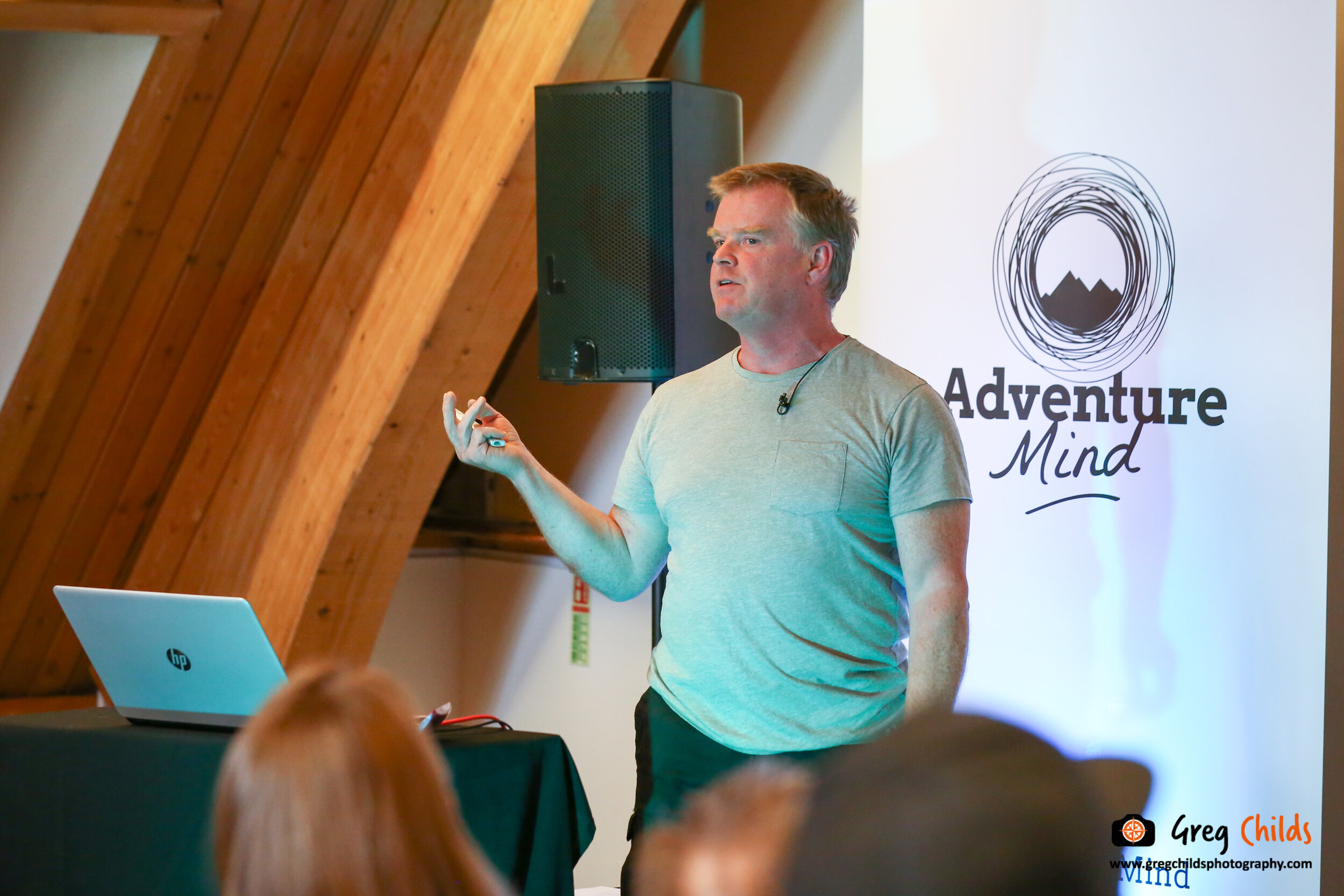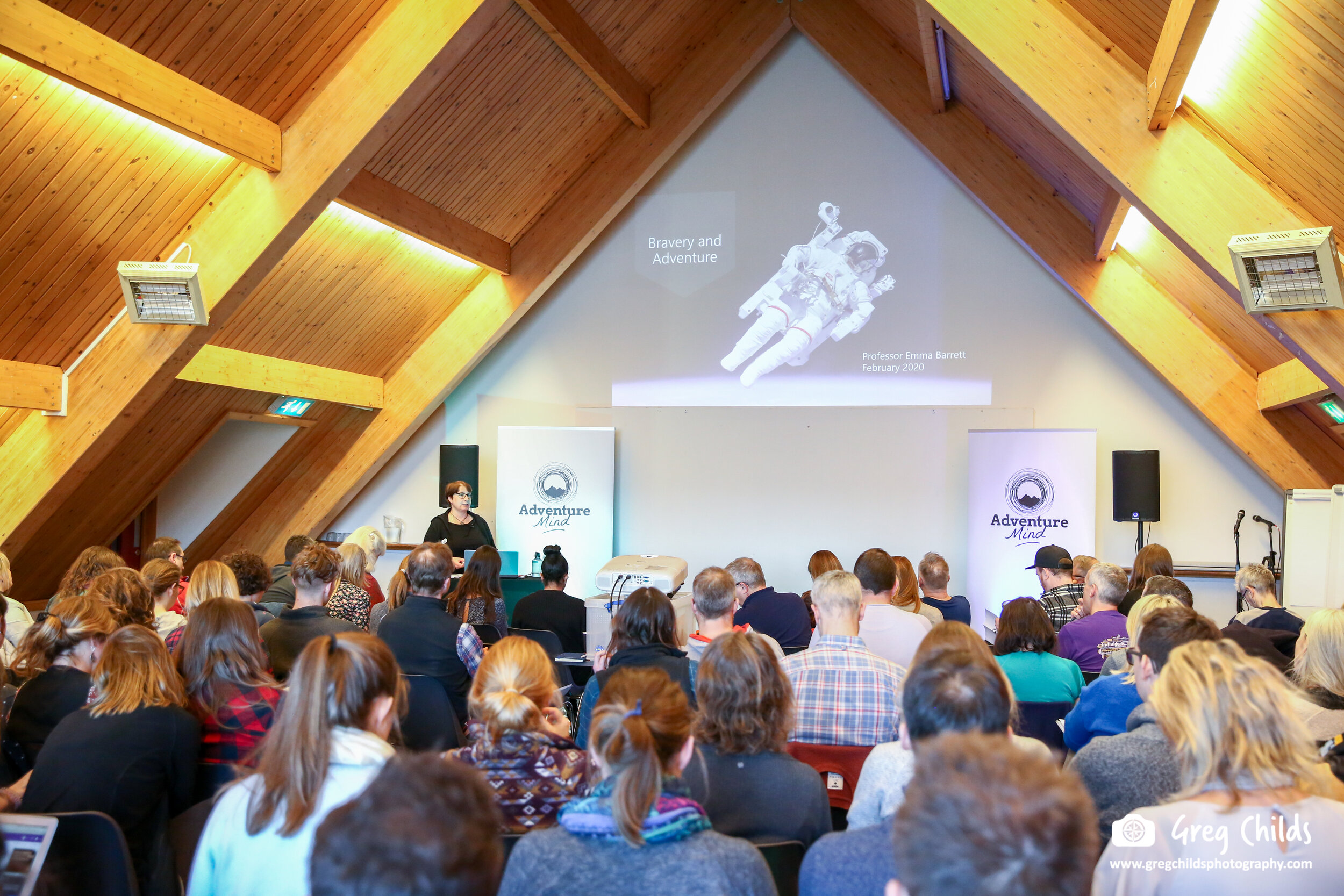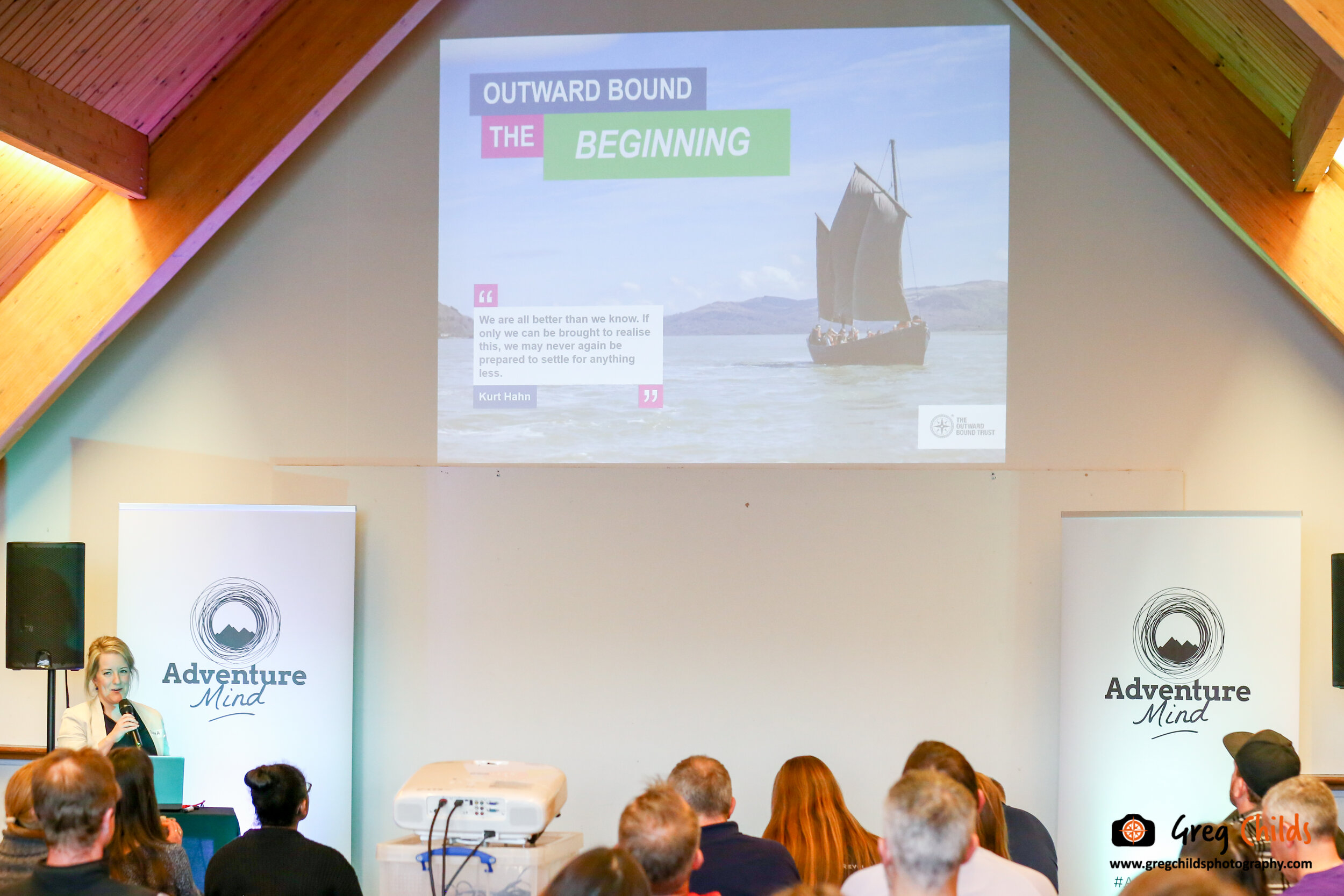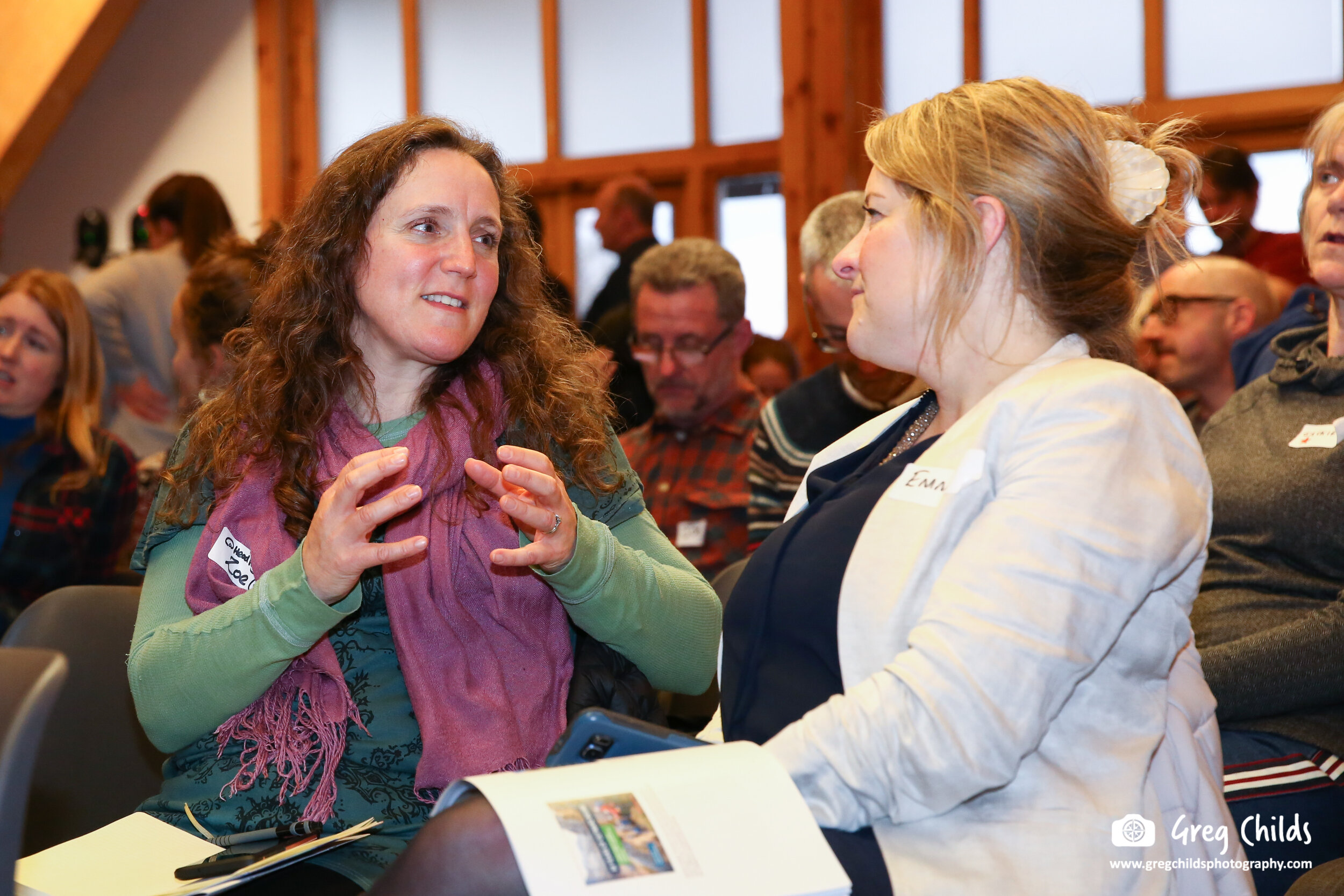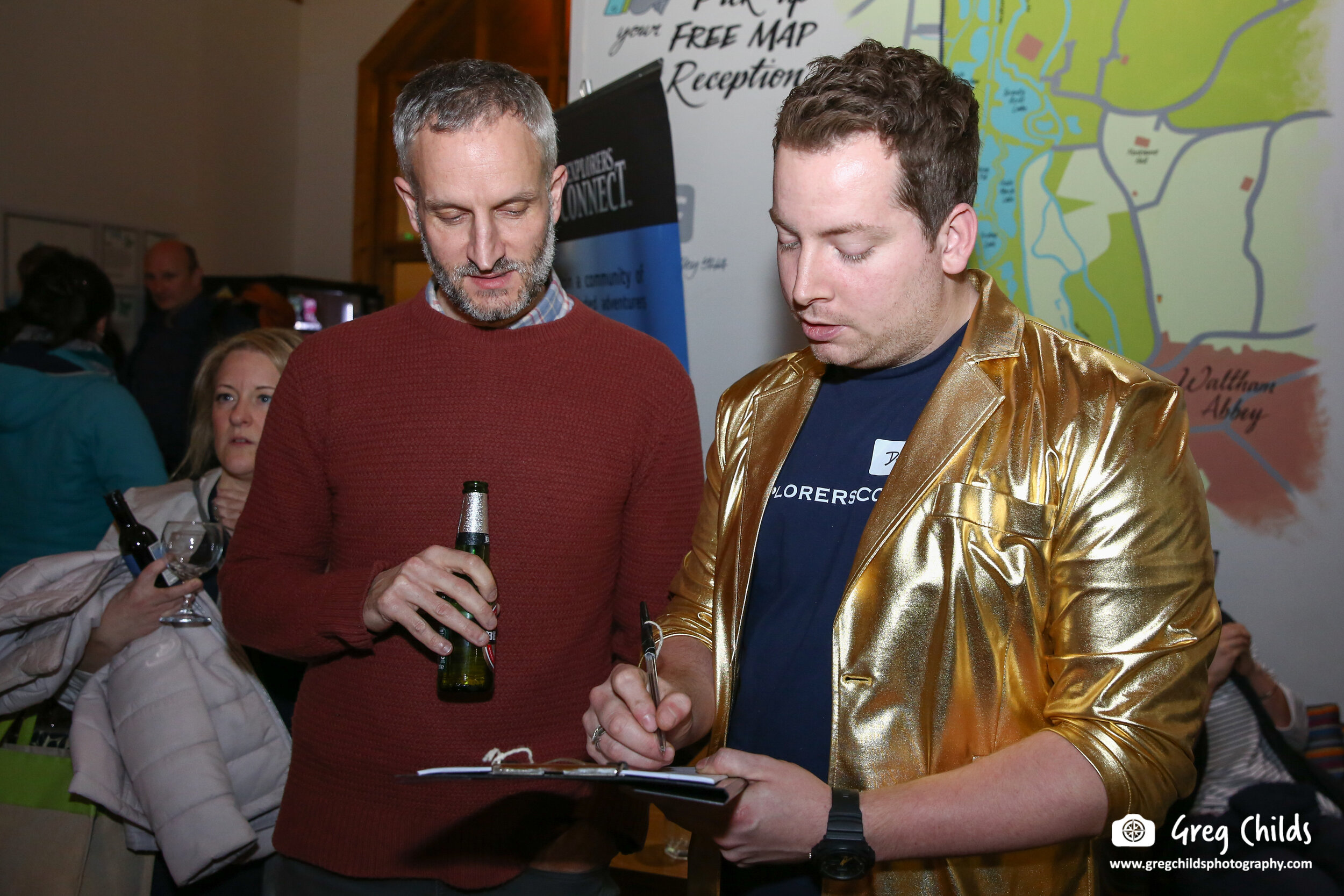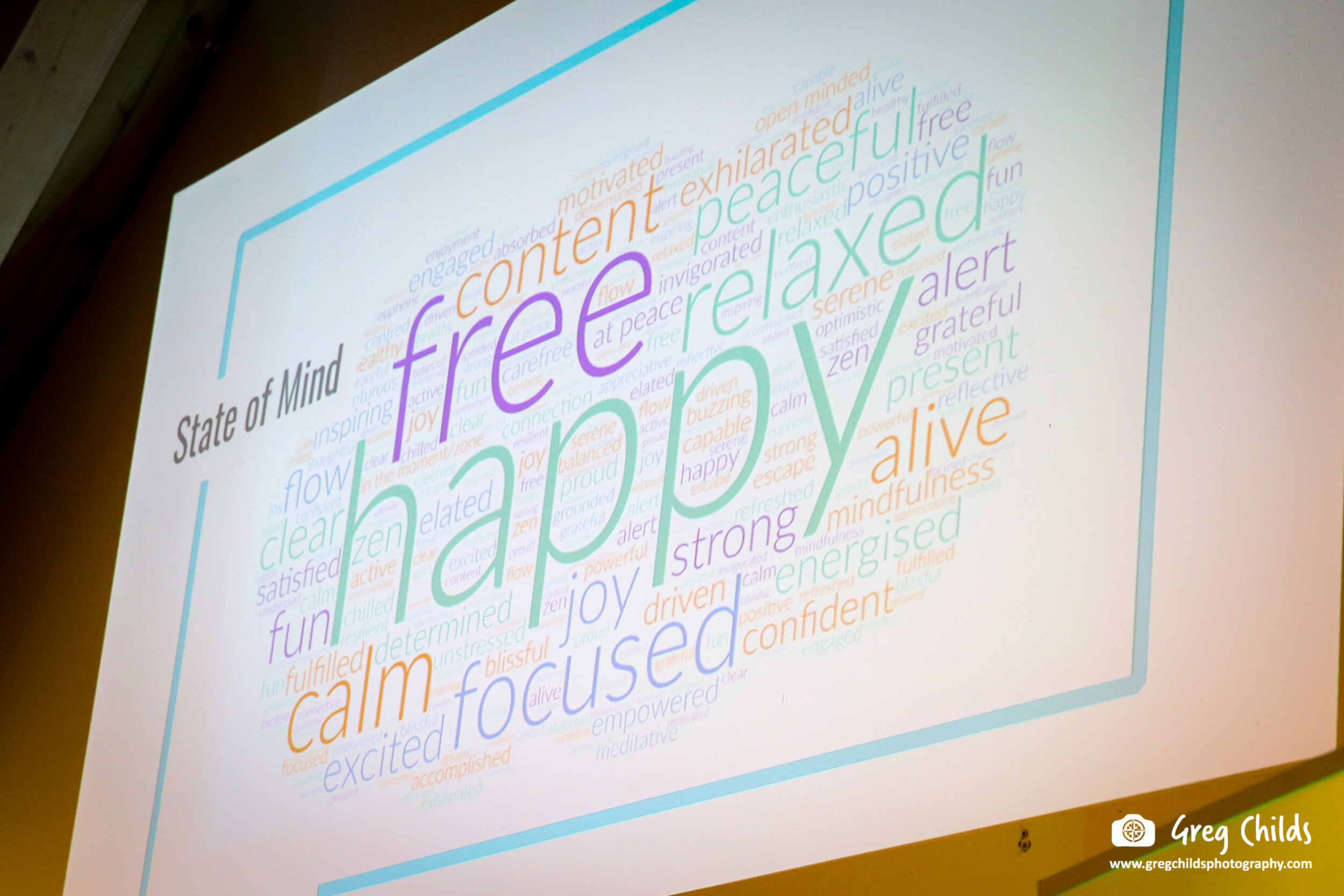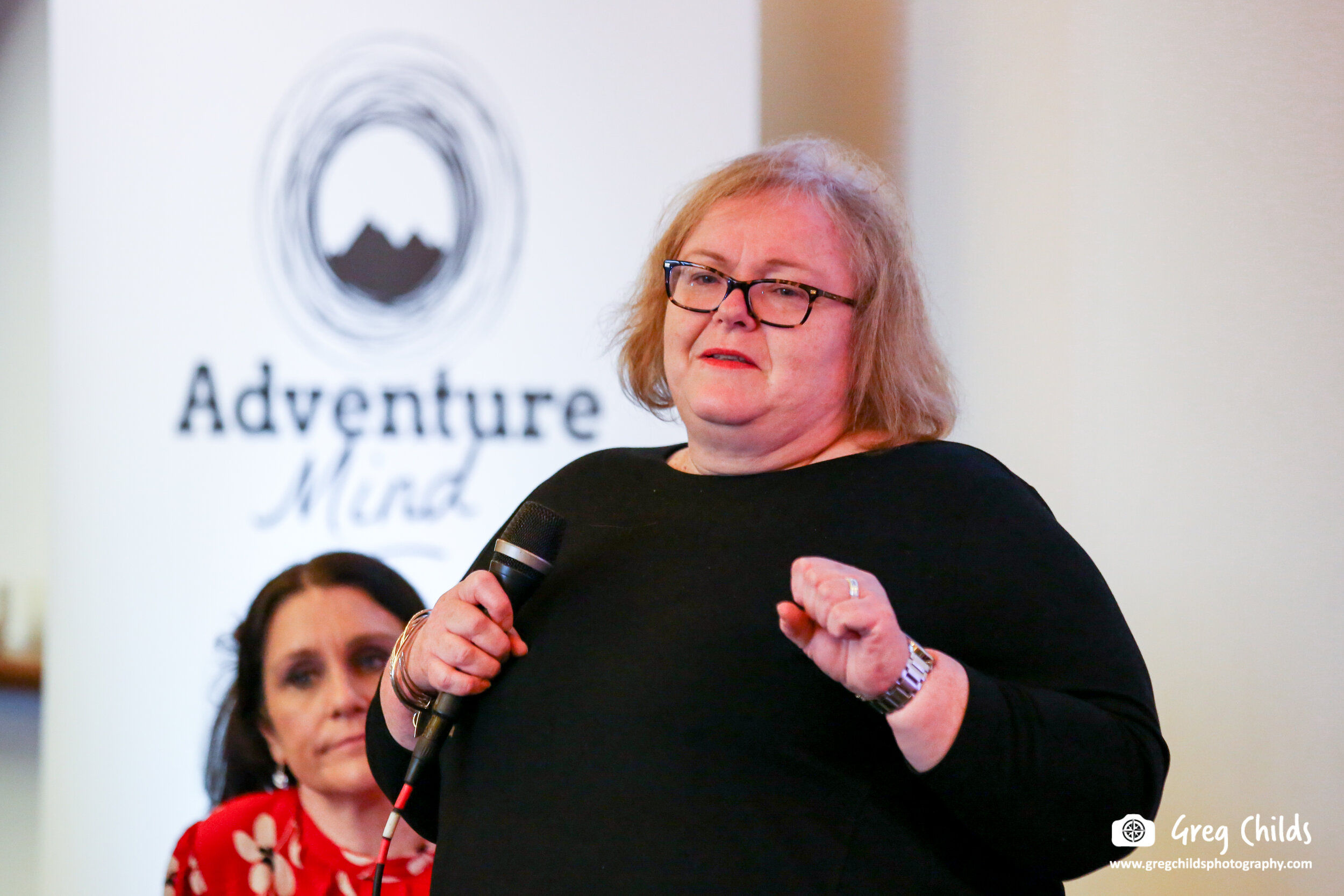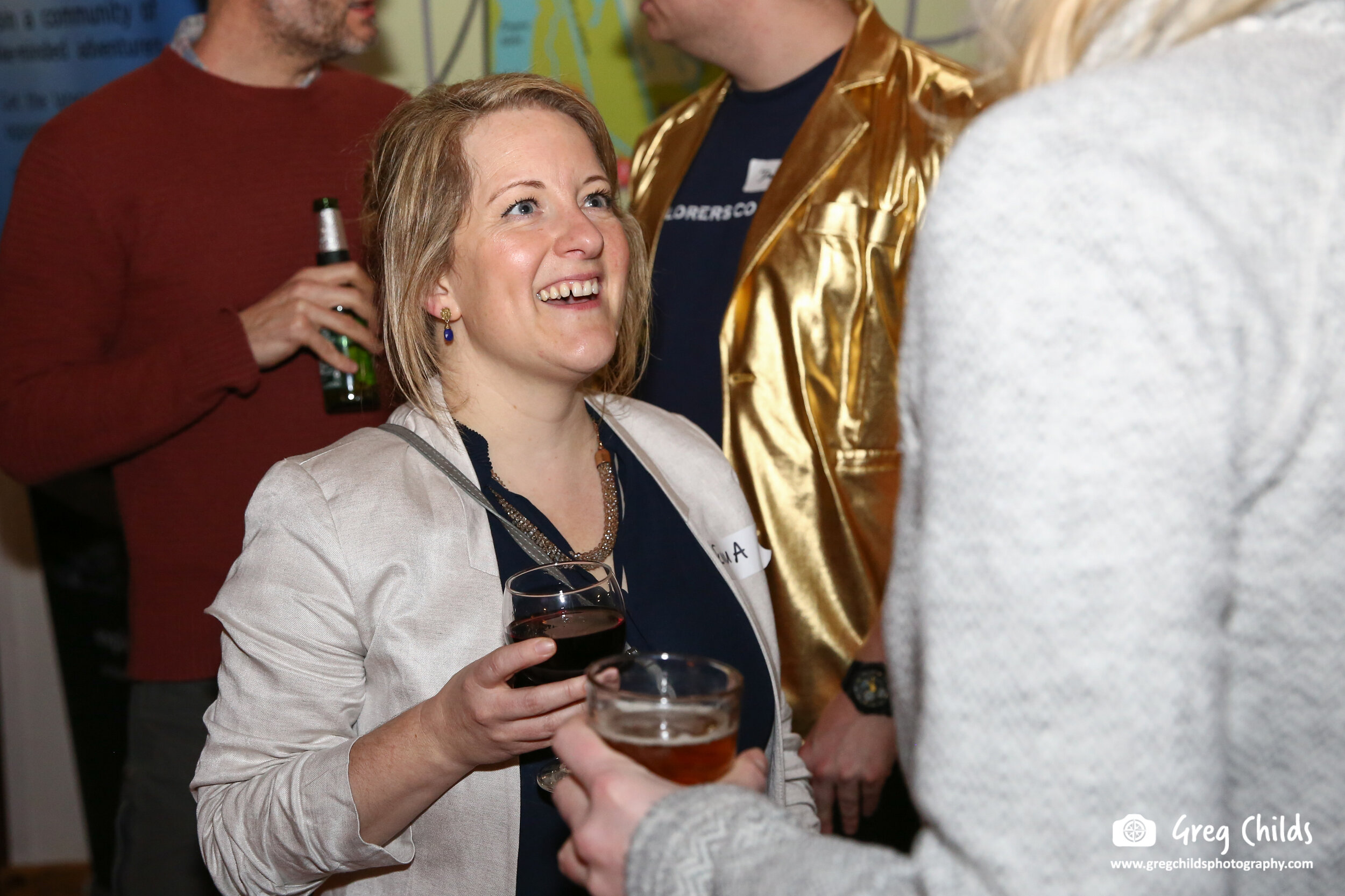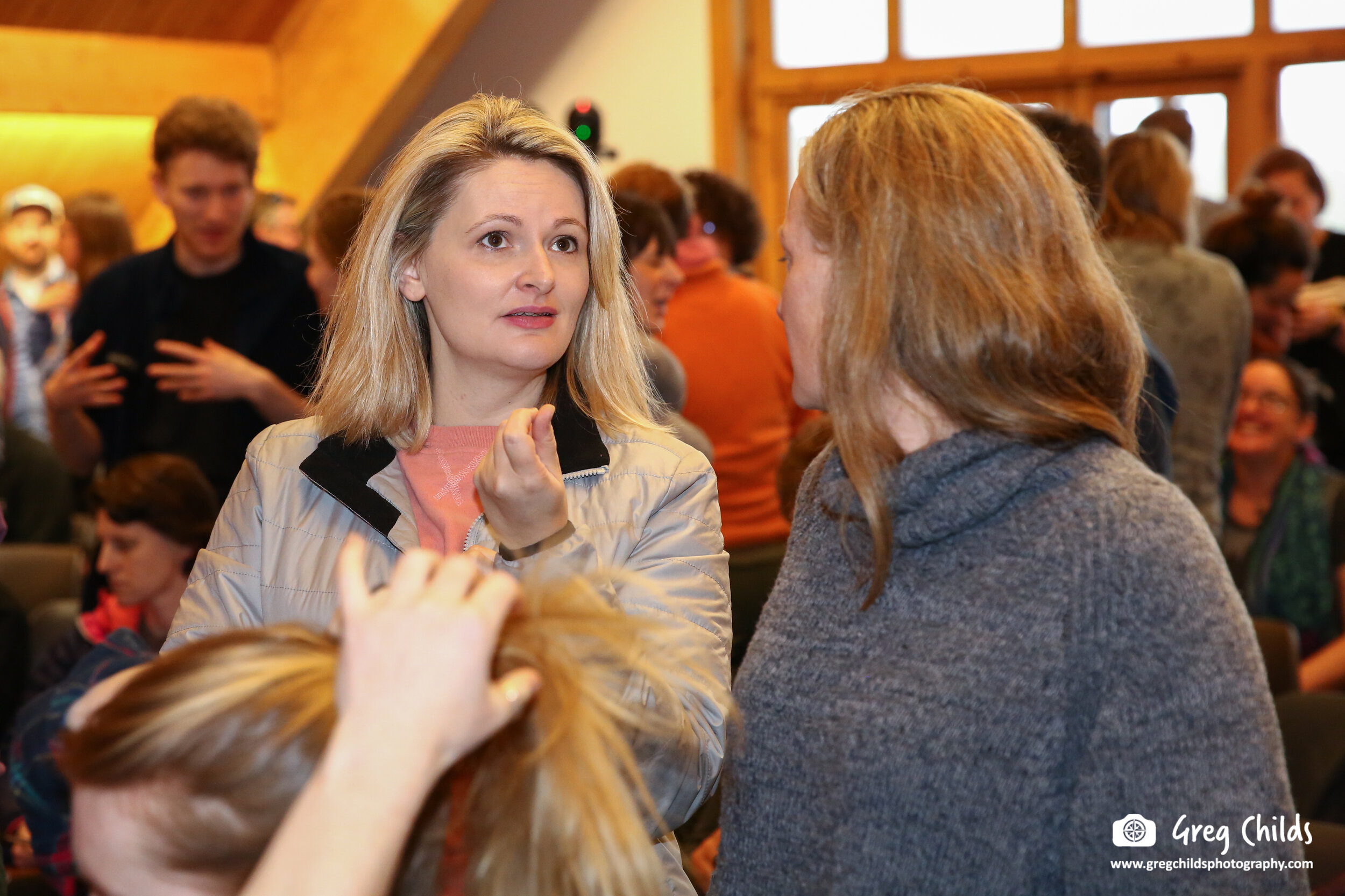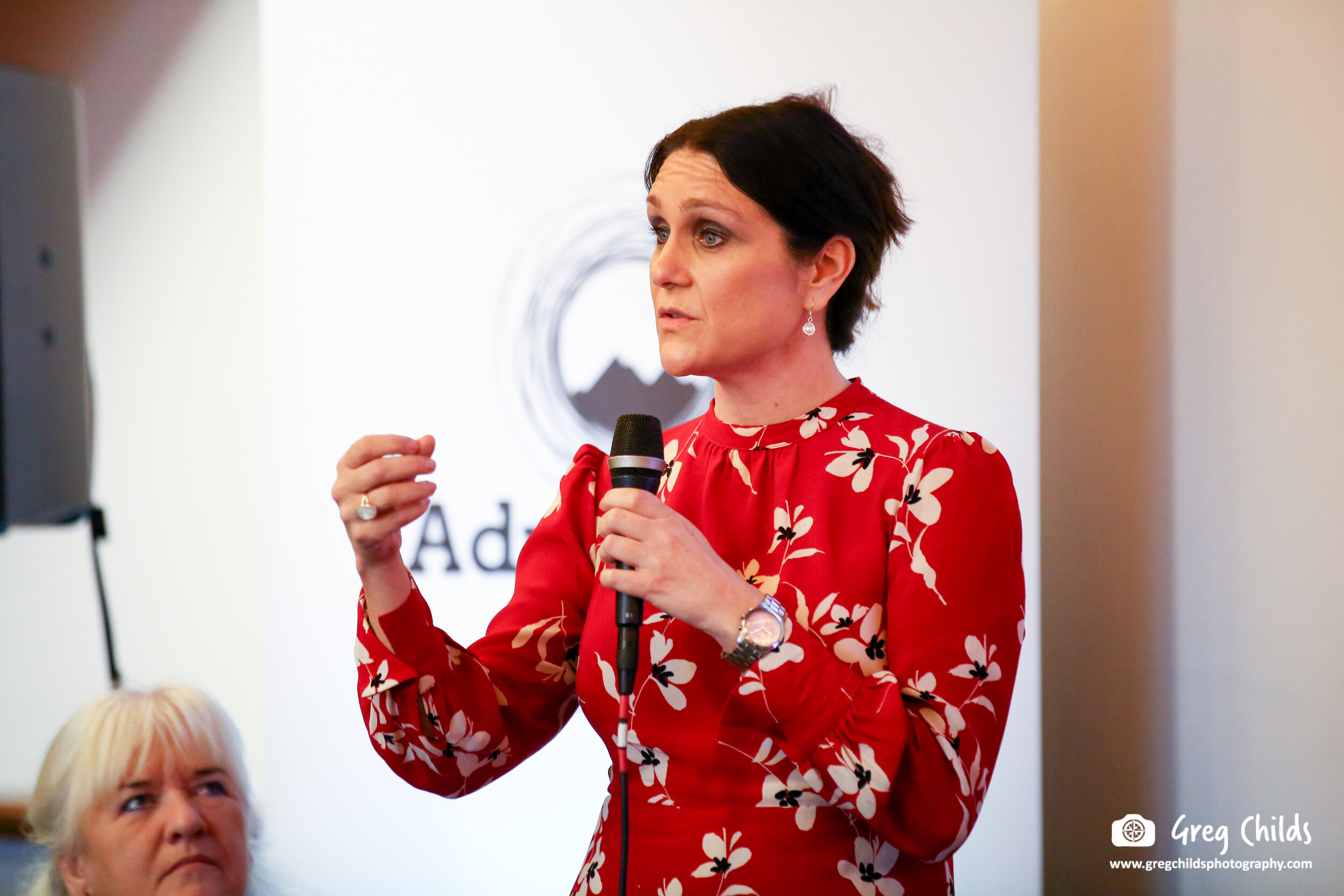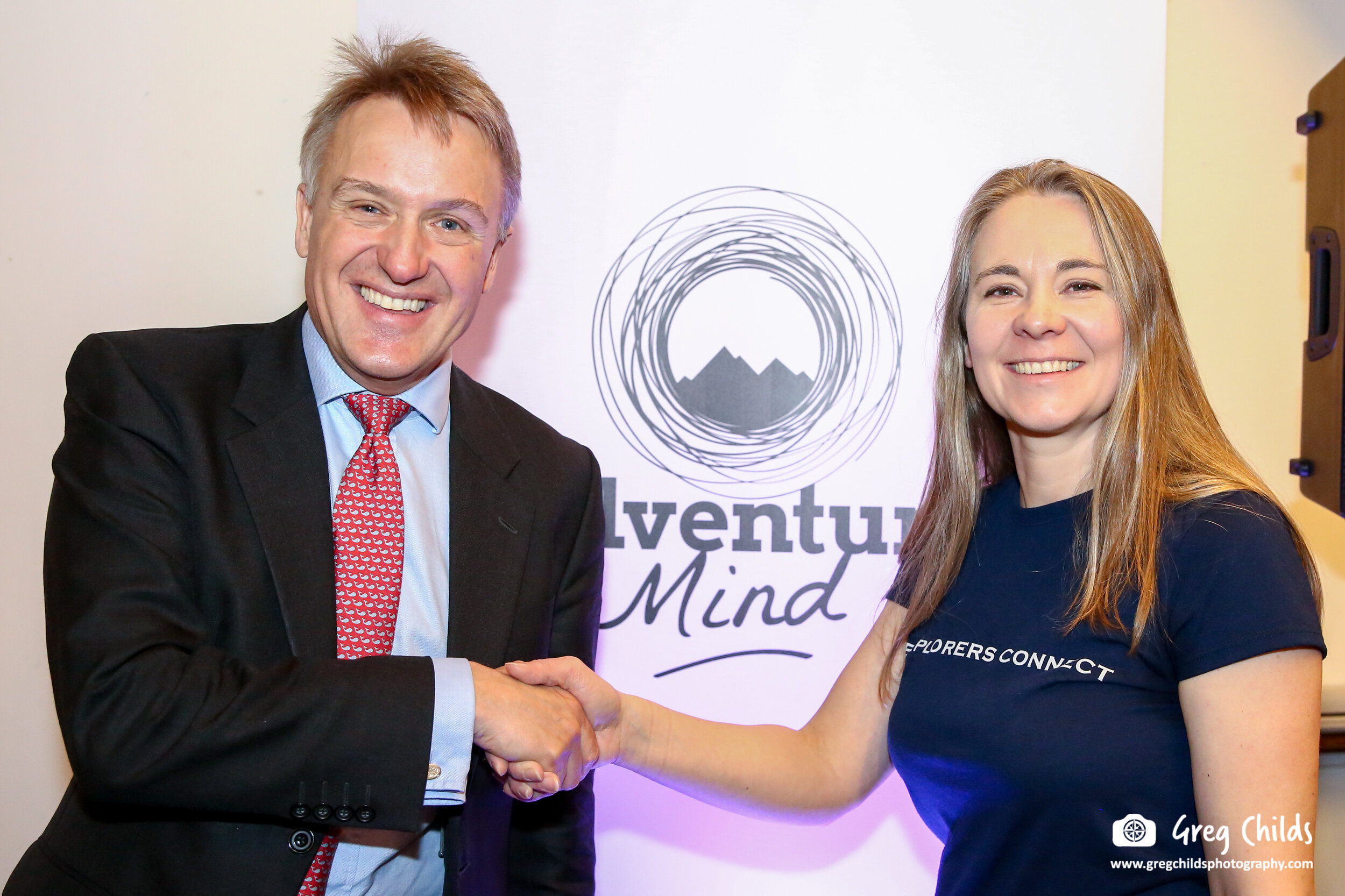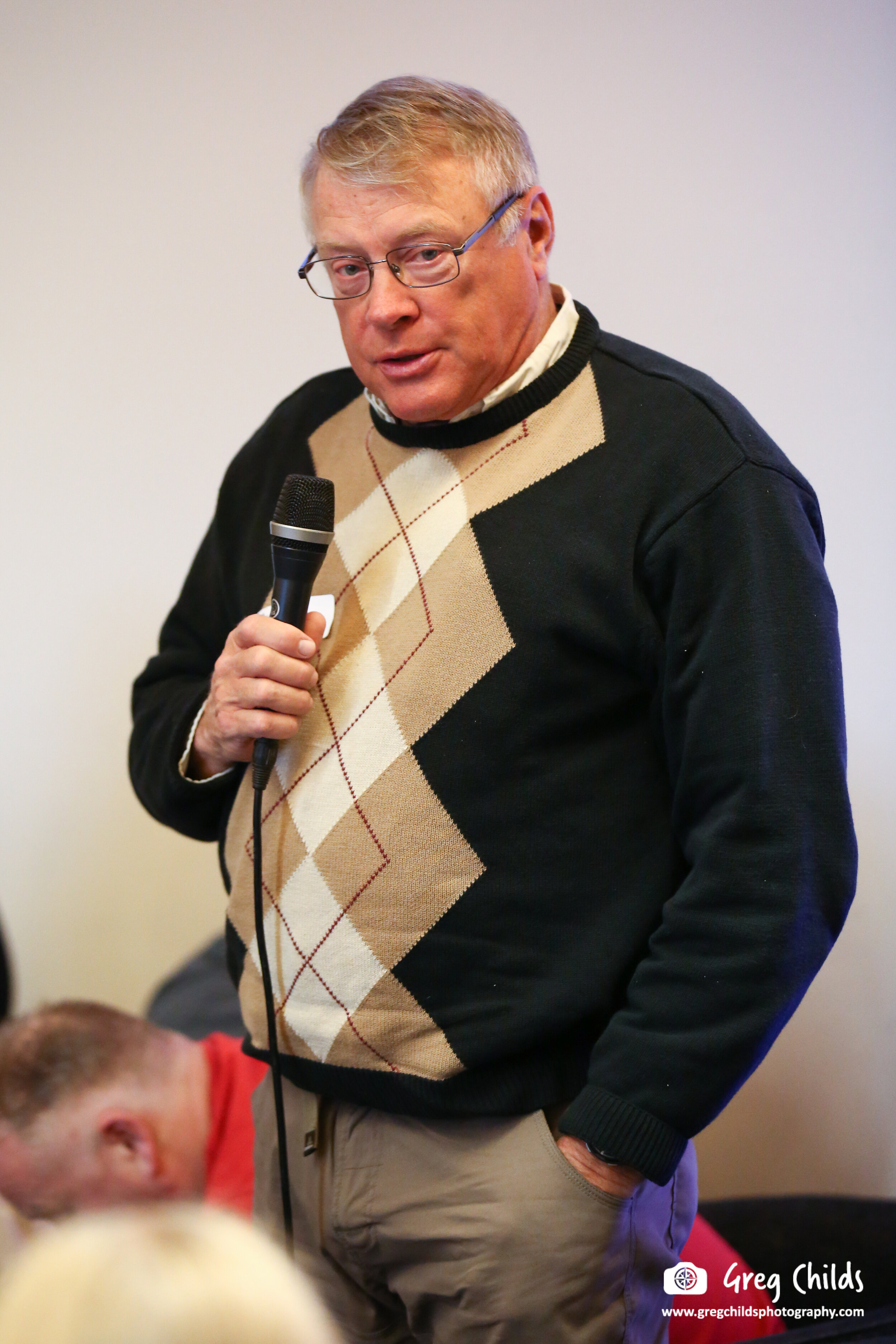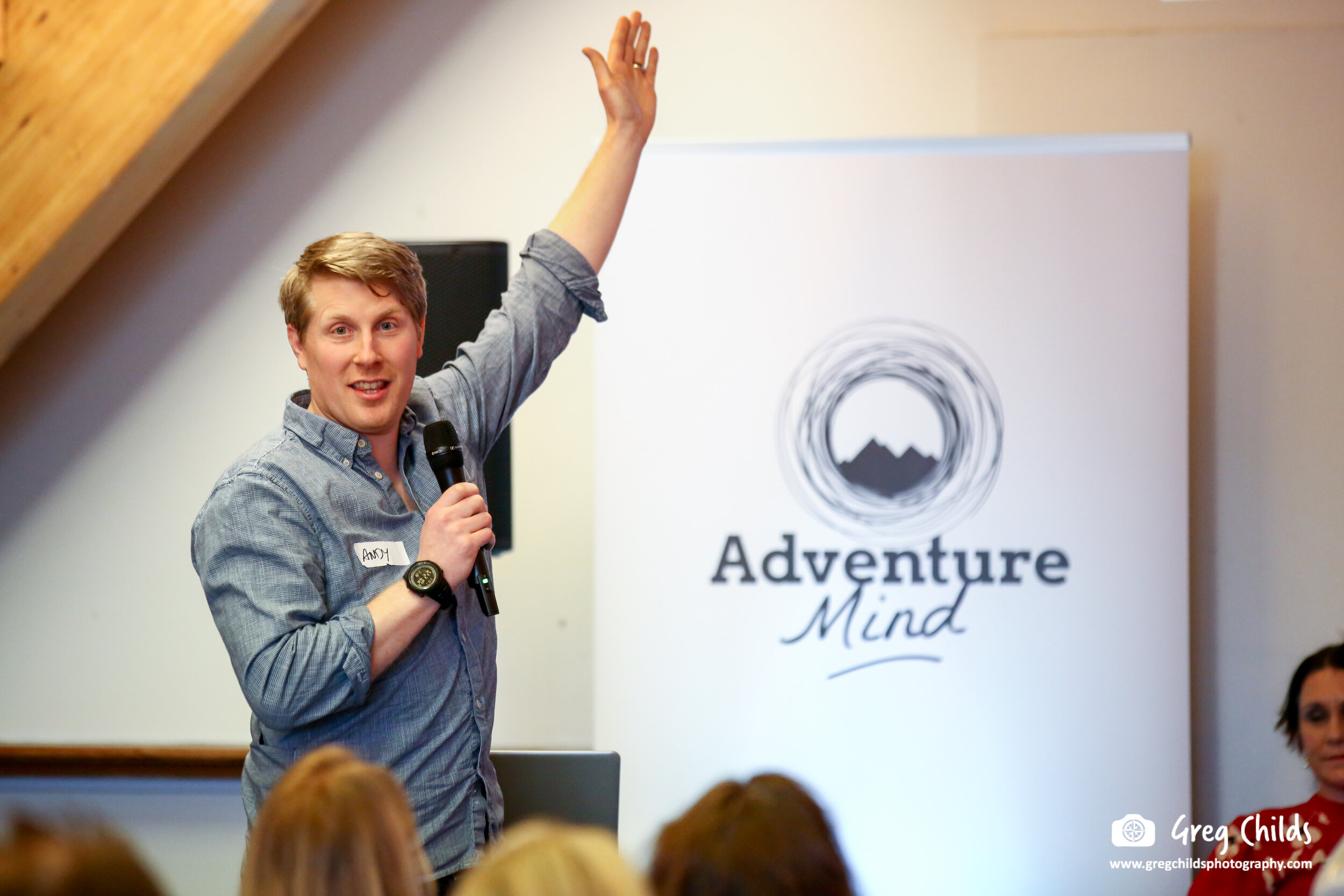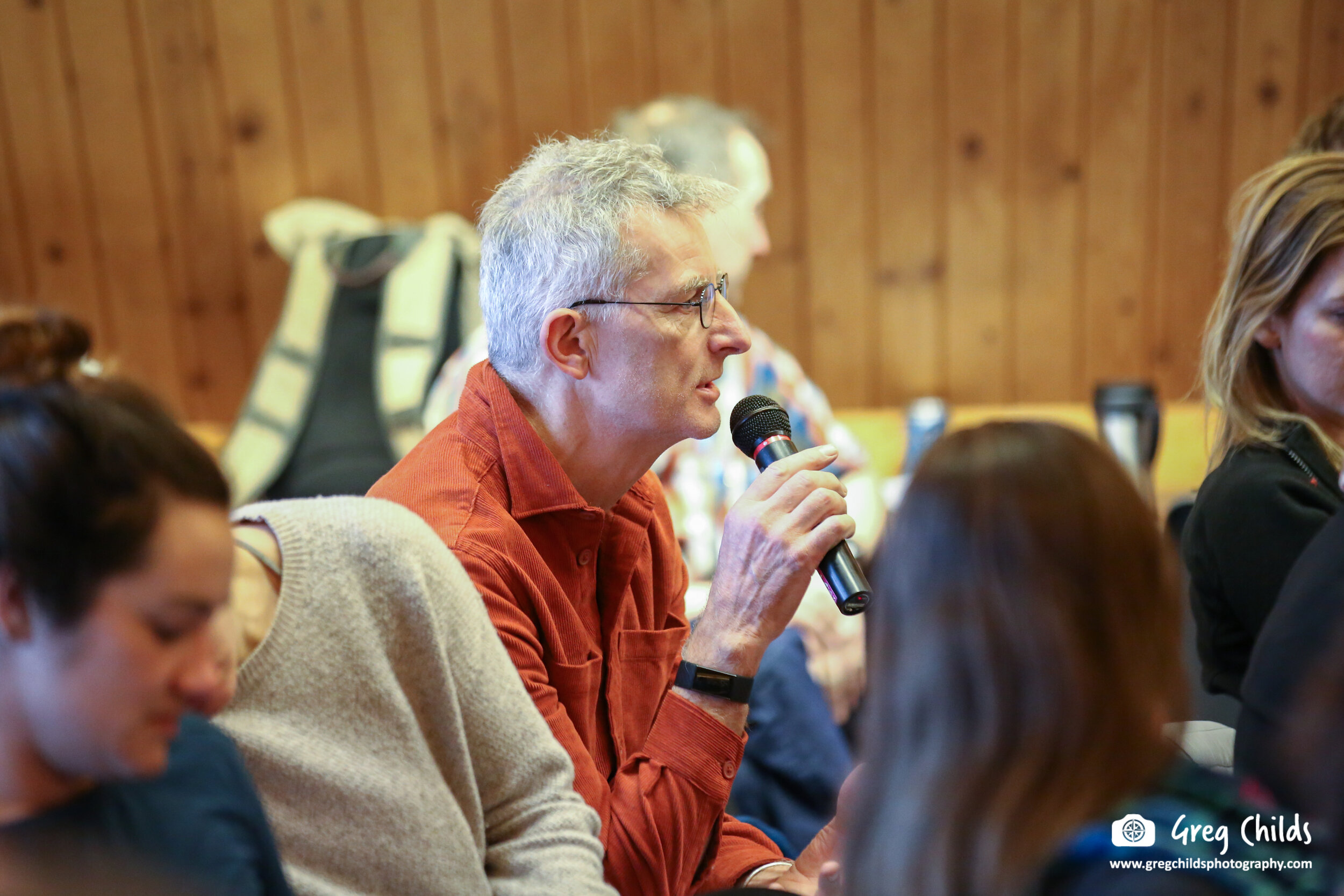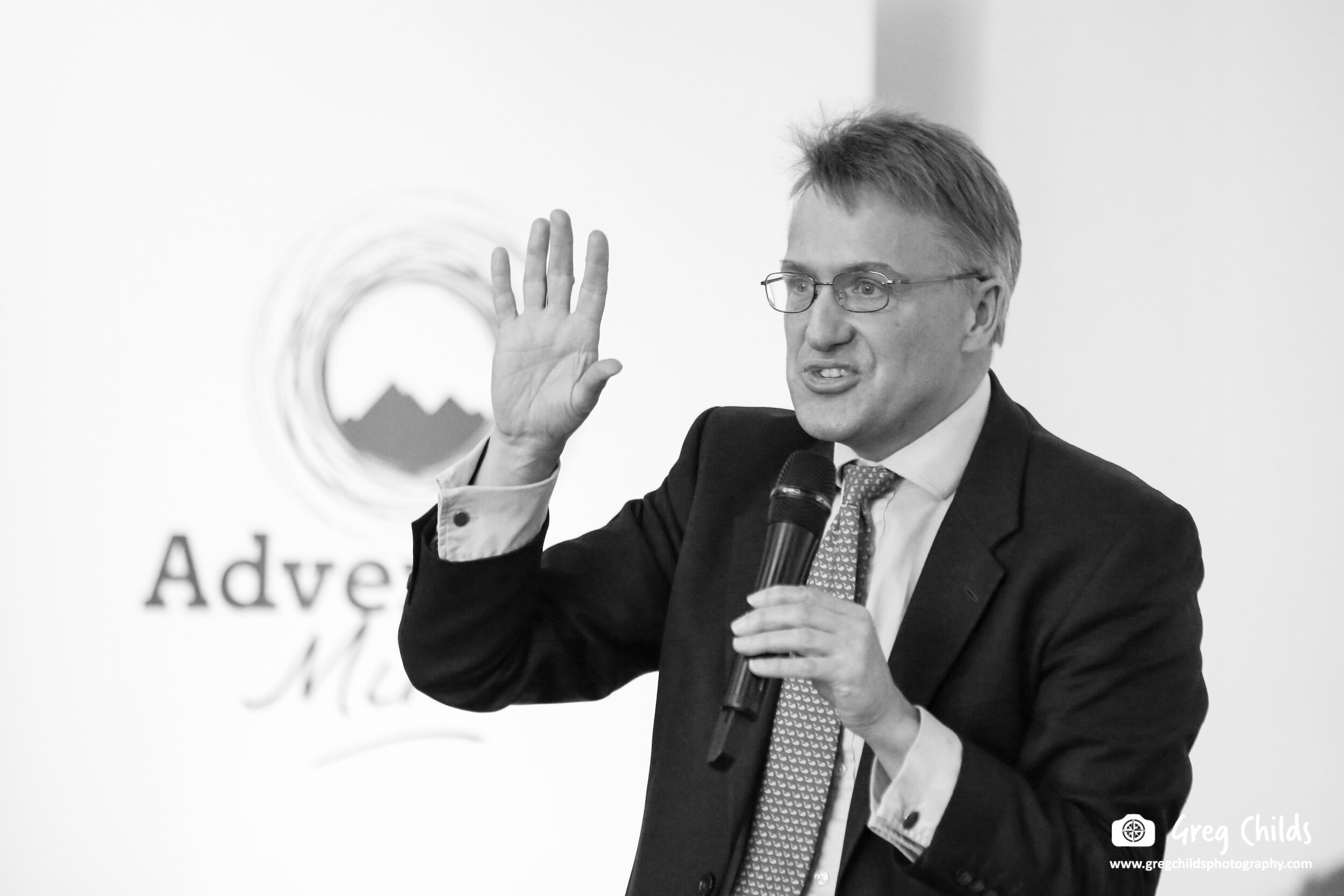Words by Zoe Langley-Wathen of HeadRightOut, photographs by Greg Childs Photography
“Is adventure just about being in nature… or is it something else?” Belinda Kirk, founder of Explorers Connect believes it is indeed something else.
It is a wonderful thing to be looking forward to an event for months in advance, and on attending to find oneself blown away by the sheer impact of the message, the quality of the speakers and the many connections made. I give you Adventure Mind: a pioneer conference that targeted discussion around adventure as a means of ensuring good mental health and seeking to effect change in acceptance of the importance of adventure in the world of the NHS, policies, and politicians.
INITIAL QUESTION
In her opening talk, Belinda asked the question of her audience: “How can adventure be beneficial for mental health?” In a matter of minutes, there was a list on the flip chart that could have been extended three times over I am sure. Words such as ‘relationships’, ‘identity’, ’emotional freedom’, ‘encourages honesty’, ‘authenticity’, ‘positive life transformation’, ‘resilience’, ‘face fear’, ‘joy’, and ‘confidence’ were some of the many offered. If we know that adventure can benefit all these areas, why then is adventuring in nature not being explored or encouraged enough, to ensure robust and flourishing wellbeing within our society?
BRINGING OUTDOOR PRACTITIONERS AND ACADEMICS TOGETHER
The variety of speakers was balanced by those with stories to share whose lives have been personally and positively impacted by adventure experiences, alongside highly regarded academics from across the globe, who have undertaken research and continue to examine data directly relating to areas such as resilience building, stress management, bravery, and family wellbeing. Professional outdoor practitioners, both those who partake in adventure individually and those who offer adventure to others, presented enough evidence alongside the academic results to convince even the most skeptical policy-maker. I remain open-mouthed at how little attention is being paid to the need for EVERY young person to experience at least one night under the stars before they are eighteen. In my opinion, the relief this could potentially deliver to the mental health crisis that continues to pull on the NHS would be potent.
Those powerful stories shared over the course of the two days will take weeks for me to fully process. I am one of these people who will cogitate over what I have heard for some time and then in a few months I will find even more information creeping back into my consciousness, to surface at opportune moments. Ideally, these will pop up when talking to somebody in the appropriate field – instead of those blank-brain moments that seem to come more frequently as I approach my next decade… this is why I write copious notes at meetings, lectures, and conferences! There is a greater opportunity for me to re-read and use, rather than listen and lose.
The Institute for Outdoor Learning have worked tirelessly to present an extensive and highly valuable document that indicates good practice within outdoor mental health interventions. On dipping into the booklet, I found myself realising that within the nine years I have spent long-distance walking and wild camping, my experience is but a wee drip, at least by comparison to that of the expedition leaders and outdoor education providers. This is not to suggest that I am finding fault with my own level of knowledge; merely that I could indeed expand on what I have currently, to consider opening up more opportunities, for myself and others.
THE EMPTY NESTERS
During the conference, I began to really scrutinise who my end-user of HeadRightOut is likely to be. As I pushed these thoughts around my head, I kept returning to the notion that women around mid to late forties and above can sometimes struggle with the loss of their identity and purpose. This may be particularly so for the ’empty nesters’, as children head off to university or simply leave home. Relationship breakdowns may have shaken the family unit or simply the increase of peri-menopausal or menopausal hormones may be causing the woman to scream for a different direction in her life. An introduction to the outdoors through adventure can be life-changing for women in this group and thus can positively affect those directly connected to them. Role models for daughters (and sons) – even those who are now considered adults, remains an effective method of indirect positive-parenting. I for one experienced that significant impact in my fortieth year, following my solo walk of the South West Coast Path.
ALMIGHTY NERVES
I would be fibbing if I said I didn’t feel a tad nervous before attending Adventure Mind – actually, I was experiencing a huge dose of imposter syndrome. On arrival, however, it all changed. I met with other people who may well have felt just as nervous but made some super connections with Rachel, Nicki (Resilience at Work and The Everyday Adventure Club), Hazel, Katy (Morindoo Adventures), Tori and many more. The moment when the lovely Ceri from 4Elements, visiting the conference from Germany, asked me if I was Zoe Langley-Wathen made me truly comprehend the power of social media. She had seen my name pop up in the Tough Girl Tribe and had also listened to my podcast episodes with Sarah Williams. For anyone building a business that needs reach, social media works!
NOTABLE MESSAGES TO TAKE AWAY
Messages then that have stuck with me from the conference: firstly Dr Chris Loynes – he made the point that “adventures allow you to find something new in yourself”. This gives the child a structure on which to build a steady foundation into adulthood. As a teacher, I absolutely agree but additional thoughts on this were that many adults have never had that opportunity to build a strong and healthy foundation either. Therefore positive change is needed for them to move from adulthood (as they once knew it) into a NEW phase of adulthood. As I previously suggested, this should then filter down to other key family members.
BUILDING RESILIENCE
Dr John Allan imparted his wisdom and teaching around the building and strengthening of resilience. I particularly appreciated the metaphor of a tightrope for resilience. It may be unstable and of variable height but if one stays still, you are in a position of fixed survival mode; whereas, if one moves forward, you experience growth and development. By undertaking regular practice on this tightrope, it eventually builds up the layers of rope which make it thicker, stronger and more steady to negotiate. That explanation really connected with me.
WOMEN SURVEYED SPEAKS OF MAJORITY MESSAGES
Hetty Key, founder of Women in Adventure has been conducting surveys, gathering data and tirelessly analysing the results. She aims to understand how different sports affect the mental wellbeing of women in order to help brands and organisation increase participation and improve diversity. In her words, “women all reiterated the same message”. Being outside and participating in sport or adventurous activities helped them to feel happy, free, focused, relaxed and calm. A powerful “99.7% of 3000 women aged 25 – 55 years-old surveyed, say they strongly agree or agree that the outdoors benefitted on their mental wellbeing”. To be positively impacting stronger relationships, friendships, work performance, sleep patterns, lifestyle balance, and family values, this research sends out a compelling message to us all and more importantly to the brands and industry who can use the data productively. More detailed information about the results can be found by visiting her website: Women in Adventure.
MOVING STORIES
Twenty-one-year old, Amina Smith Gul brought tears to my eyes with her heart-wrenching tale of a tragically disaffected childhood and a murder – an exceptionally tough start to life. Her only solace was football and as a teenager, she could easily have been led into paths of ruin. Instead, she turned around after connecting with Caius House Youth where (in the words of their strapline) her potential was unlocked. She was given the opportunity of a lifetime to head out on a three-week expedition to the Peruvian Amazon rainforest. Another life saved – and as a young mentor herself now, she champions adventure to other disaffected young people.
The penultimate speaker, Kelvin James pasted his slides with the line, “don’t just survive – thrive!” He too told a story of an unhappy childhood. One photograph with his mother as a toddler was presented on screen. He pointed out that this was the last photo of him smiling as a child due to the ill-treatment of his family at the hand of his new step-father, although the Scouts proved to be his saving grace as a child. I was shocked at the news of the brutal murder of his mother and wondered how he ever managed to piece his life back together. He shared how he found himself “using mindfulness and adventure to walk back out from the dark to survive things”. His final words: “be a star in someone else’s darkness”. I found that so moving.
SOCIAL PRESCRIBING – A DOSE OF OUTDOOR MEDICINE
Never believe there is no other way. Consider the term, ‘social prescribing’ which I was introduced to for the first time at this conference. The Wave Project for example, has funding to work with GPs to provide surfing lessons to youngsters suffering with poor mental health. Pills may not be the answer – instead a good dose of outdoor medicine, fear-facing and confidence-building may be just what is needed to turn around an otherwise tattered mental state. Or it could simply be a whole lot of fun – and that is exactly what this world needs more of.
Thank you Belinda and the Explorers Connect team for the first Adventure Mind conference… and hopefully the first of many.
Words by Zoe Langley-Wathen of HeadRightOut, photographs by Greg Childs Photography


